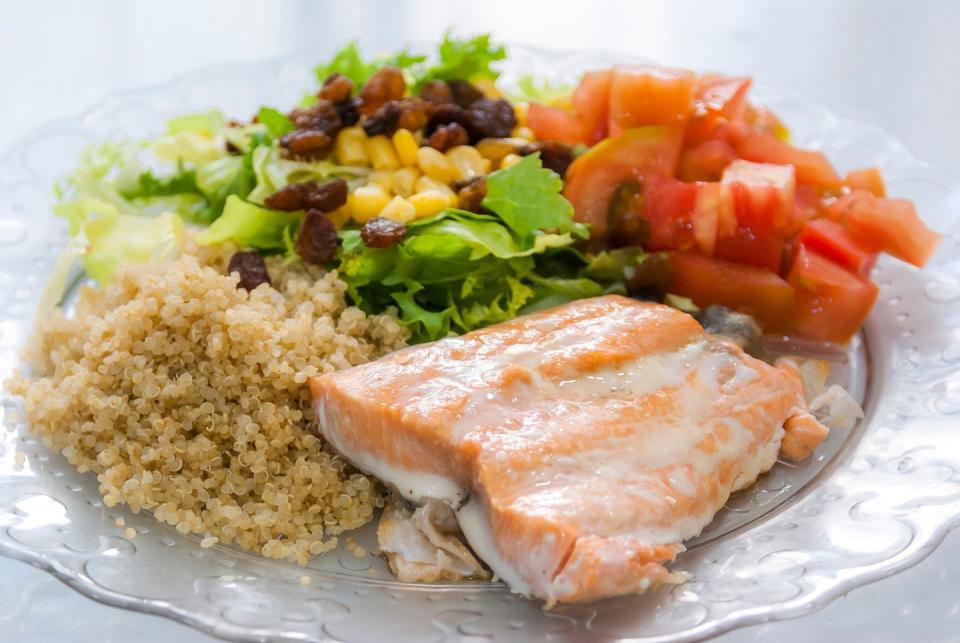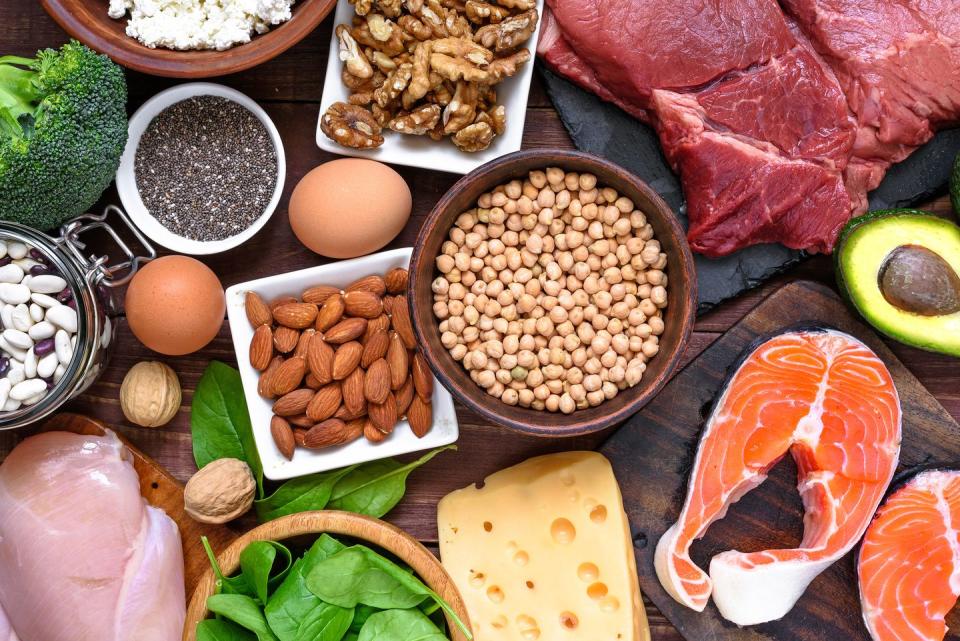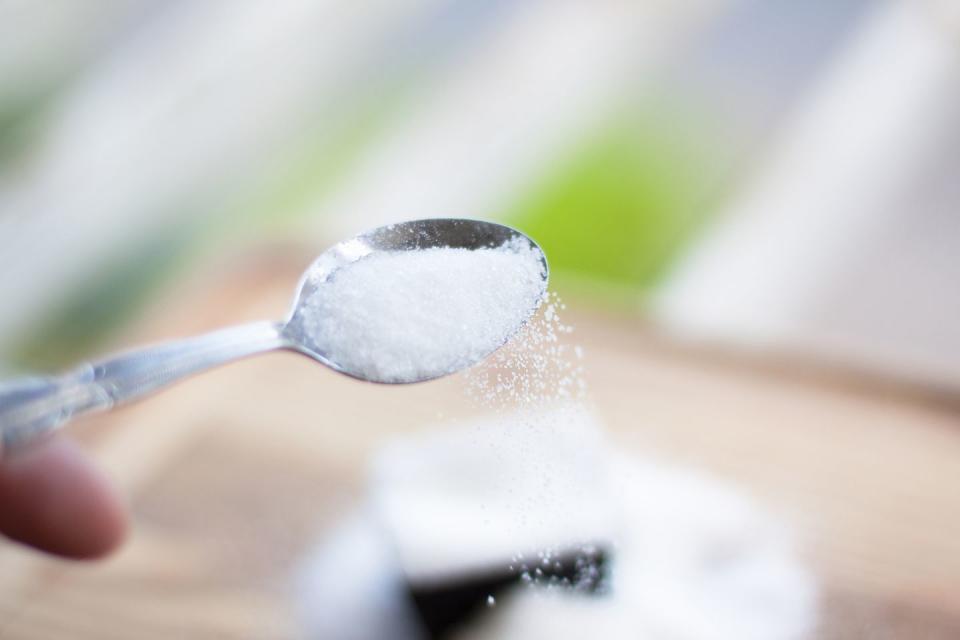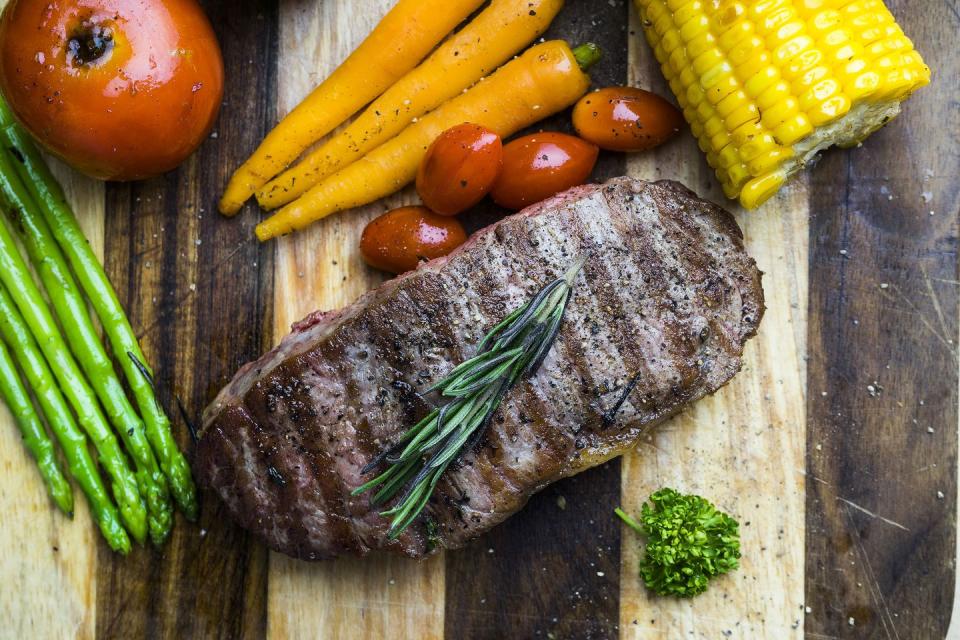These Doctor-Approved Diets Help Women Over 50 Fulfill All Their Health Needs

As women approach 50, their bodies prepare for and go through menopause and other side effects of aging. Many women need to take new and different approaches to maintain their health, including adapting their diets to obtain the requisite nutrients. In that case, they may want to look into the best diets for women over 50.
“The 50s are a time for big changes, thanks to perimenopause and menopause. This is a time in a woman’s life where she has hormone fluctuations, which can cause changes in metabolism and body weight,” registered dietitian Julie Kay, MS, RDN, tells Woman’s Day. Kay also cites osteoporosis, osteoarthritis, and changes in blood sugar regulation (insulin resistance can occur due to hormone changes) as other conditions women in this age group might experience.
Registered dietitian Kayla Hulsebus, MS, RD, LD, explains that women can alter their diets to better adapt to their bodies’ natural changes. Below, Hulsebus shares the best diets, or rather, lifestyles, for women over 50 that can, “help support healthy muscle mass, hormone balance, and proper weight management.”
Mediterranean
The Mediterranean diet is great for heart health and may prevent cancer and diabetes. It doesn’t restrict or eliminate any food groups, but instead encourages everything in moderation. Hulsebus notes that it emphasizes carbohydrates from fruits and vegetables, in addition to whole grains, which have a lot of fiber and will leave you feeling full for longer.

It has plenty of omega-3 fats, found in foods like fish and olive oil, that also boost satiety in addition to assisting with hormone production. It’s also high in protein, both in plant and animal-based products. This protein is important for women over 50 who need it to fight muscle loss that happens with age.
Paleo
The Paleo diet is a high-protein, low carbohydrate meal plan that is rich in eggs, veggies, fruits, nuts, and unprocessed meat. Hulsebus says that its lower carbohydrate nature is beneficial for women in their 50s and older who may be dealing with insulin resistance and are unable to process carbs like they were before.

She also notes that “Paleo has no soy or dairy, which can help women going through changes with hormones since excess soy and hormones found in conventional dairy products can lead to high estrogen levels, making women store weight in their thighs and hips.” It also includes good fats which promote healthy hormone production.
Whole Foods
The whole real food, or “clean eating,” plan avoids all processed foods, which can prevent inflammation. This diet can also help manage hormones, due to the fact that whole foods don’t have antibiotics or preservatives, which can be big hormone disruptors.

It focuses on whole real food products, like fruits, vegetables, legumes, whole grains, fish, meats, and healthy fats. Hulsebus says that the lack of processed food equals less refined sugars, resulting in better blood sugar stability and less abdominal fat being stored. The high number of nutrients and fiber in these foods also results in feeling full, preventing overeating.
Autoimmune Protocol (AIP)
Autoimmune protocol (AIP) focuses on repairing the gut and decreasing inflammation, which can be very helpful with the hormonal changes women in their 50s experience. It can also remove toxic and trigger foods such as refined sugars and processed foods which can cause malabsorption and inflammation in the gut.

“If the gut is unhealthy, it inhibits the body’s ability to absorb nutrients,” Hulsebus says. “This causes hormonal imbalances which exacerbate the hormone changes that are already happening.” AIP also supports your immune system which can decrease the risk of illness as we age.
Higher Protein/Moderate Carbohydrate
Eating a high-protein/moderate carbohydrate diet can aid the body during its natural aging process. Studies have found that higher protein levels support your body’s muscle mass since it decreases as you age and also keeps you full, decreasing the amount of food that’s consumed.

A diet high in protein can also encourage blood sugar stability, as protein can decrease blood sugar levels. “As women age and go through hormonal changes, one thing that’s affected is their insulin sensitivity and how they process and utilize blood sugars,” says Hulsebus. Eating moderate levels of carbohydrates helps the body get enough B complex vitamins, which can be beneficial for preventing dementia as we age.
You Might Also Like


